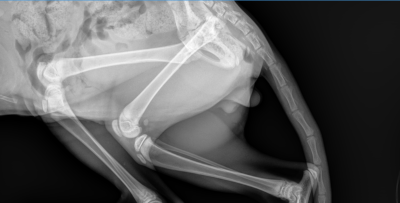I have a 4 mo kitten that has a traumatic posterior hip dislocation (in addition to transphyseal fracture) and am wondering about the results of non-operative treatment vs femoral head ostectomy
Would appreciate reference to any literature discussing outcomes of both options
Would appreciate reference to any literature discussing outcomes of both options
Attachments
-
1.9 MB Views: 21
-
696 KB Views: 21





